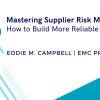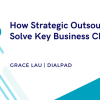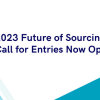In his best-selling book “The World Is Flat,” Thomas Friedman a decade ago chronicled the ways in which technology was accelerating the pace of global commerce by extending market access to remote corners of the world. Meanwhile, alongside the rise of globalization has emerged a parallel phenomenon: a proliferation of supranational governance structures affecting everything from tariffs, taxation and terrorism to carbon emissions, data protection and sanctions enforcement. While formal agreements among nations date back centuries, what sets apart many of those enacted in recent years is the high degree of granularity with which they regulate commerce. Today, businesses large and small must grapple with the detailed implications for their operations, forcing them to reexamine how — and with whom — they conduct business.
Though eager to lend their support to social and political objectives they often deem worthwhile, many business leaders nonetheless find themselves in a quandary: How do I meet regulations to address positive social and environmental impact, but balance cost with shareholder demands for profits?
Fortunately, businesses can operate both competitively and conscientiously by embracing digital technologies whose reach is no less expansive than even the most complex multilateral pact. Cloud-based Networks, for instance, provide an unprecedented level of transparency into the interconnected operations of millions of buyers and suppliers, opening a window into the procurement and production practices of one’s trading partners. Armed with this newfound visibility, organizations can foster real-time collaboration with suppliers, diversify their available sources of raw materials, anticipate and iron out bottlenecks before they arise, mitigate third-party risk, and fuel mutually beneficial innovations. In addition, digital networks strengthen the ability of participants to ensure compliance across the supply chain. After all, it’s not only governments that seek to hold businesses accountable to socially responsible practices. Customers and shareholders increasingly demand it too. They seek assurance that the brands they support have the governance mechanisms in place to root out forced labor from the supply chain, ensure responsible stewardship of the environment, safeguard personally identifiable information, include women- and minority-owned firms among their suppliers and pay women and men equally. In fact, digital networks with connected data that can be mined to extract hundreds of responsible and ethical criteria on which to evaluate one’s current or potential trading partners, are now accomplishing in nanoseconds what once required countless hours of legwork.
The challenge facing business isn’t so much that human monitoring of compliance is expensive. It’s that as international compliance requirements have multiplied in recent years, human eyes and ears are no longer sufficient to the task. Consider farming, where the advent of precision agriculture is reshaping the way we source, sustain and ship our food. As the world’s population expands, its supply of arable land and potable water remains largely unchanged. At the same time, nearly one-third of crops spoil before reaching people — nearly a billion of whom suffer from hunger. Fortunately, technology is beginning to narrow these gaping inefficiencies through the use of drones, radio-frequency chips, autonomous tractors and Internet-of-Things-enabled sensors. Thanks to these advances, farmers can fine-tune their yield to meet demand while steering clear of pesticides associated with environmental damage, suppliers linked with human trafficking, lenders charged with sanctions-busting financial practices and partners linked to flouting protections of endangered species.
Through digital networks, the farmer — or, for that matter, any businessperson — can harvest value extending well beyond that traditionally measured by financial statements and operating ratios. He or she can reap the bounty of diversity and inclusion. As noted previously, digital networks expose businesses to a broad array of suppliers reflecting the spectrum of human diversity, equipping historically underrepresented groups with equal access to the marketplace for their goods and services. In doing so, technology empowers procurement leaders to effect meaningful change not only for their business but for the world around them. Shared data planes, combined with business networks, also help avoid redundancy by leveraging collected data once. In addition, using a shared model within a sector or region can decrease supplier fatigue by reducing repeat assessment and information requests and, when audited, generate shared knowledge.
In my next article, I will interview peers in procurement technology to gauge their thoughts on how business leaders can further enhance transparency, traceability and governance within the supply chain. We will explore responsible and trusted data usage. After all, formal agreements among nations — while extremely important — can only go so far to make the world a more ethical place to do business. They are a starting point, not a substitute. Ultimately, every procurement professional must draw on his or her own deeply rooted values, ideally reinforced by those of the organization on whose behalf they make key decisions, to make business more ethical, more accessible and more equitable for people everywhere.









